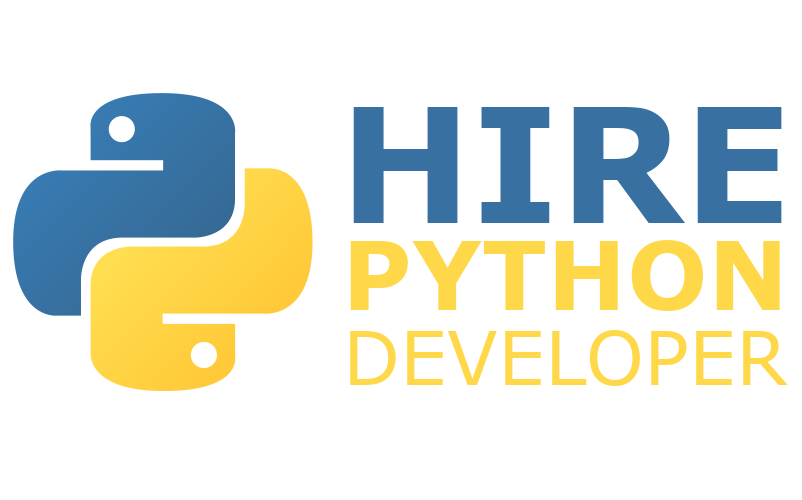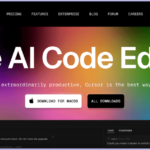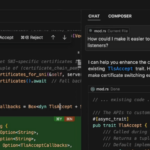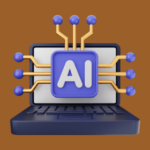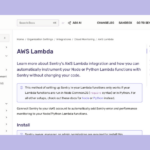Python Frameworks, the building blocks of your coding endeavors, pave paths towards swift, efficient web development.
In recent years, Python has become increasingly popular as a powerful and versatile programming language. With its easy-to-learn syntax and vast libraries, it’s no wonder why many developers choose Python as their go-to language for both personal and professional projects.
However, writing code from scratch can be time-consuming and repetitive. That’s where Python frameworks come in. They provide a structured and organized way to develop applications quickly and efficiently.
In this article, I’ll look at the top 3 Python frameworks for developers and their unique features to help you choose the proper framework for your project.
Django Python Framework

The Django framework enables rapid development of secure and maintainable websites. It has an extensive set of built-in tools, including an ORM (Object Relational Manager) to interact with databases, an administrative interface for managing content, and a robust security system.
One of Django’s key strengths is its strong emphasis on security. It provides several built-in protection mechanisms, such as cross-site scripting (XSS) and SQL injection protection, to help prevent common security vulnerabilities.
Another strength of Django is its scalability. Django has been used to develop large-scale applications such as Instagram and Pinterest, so you can trust that it can handle your project as it grows.
Flask Python Framework

Flask is a minimalist Python framework that provides a simple way to start web development. Unlike Django, Flask does not come with many built-in tools and features. However, it does offer a lightweight and flexible structure that allows developers to add custom functionality easily.
One of Flask’s most significant advantages is its low overhead. This makes it ideal for small projects or for building prototypes. Additionally, Flask’s small size and simplicity make it easy to learn and use, making it a popular choice for beginner developers.
Pyramid Python Framework
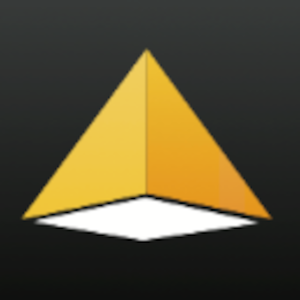
Pyramid is a flexible and extensible Python framework that can be used for small to large-scale web applications. Unlike Flask, Pyramid provides more structure and a more extensive set of tools, making it an excellent choice for medium to large projects.
Pyramid’s modular design allows developers to add only the necessary functionality, making it a highly customizable framework. It also provides excellent support for RESTful APIs, making it a good choice for building API-driven applications.
Unique problems solved by using the 3 Python Frameworks
Django
Django solves the problem of the rapid development of secure and maintainable websites. It provides a high-level framework with built-in tools such as an ORM and an administrative interface, allowing developers to focus on writing application logic instead of worrying about the underlying infrastructure.
Django also solves the problem of security vulnerabilities by providing built-in protection mechanisms against common security threats such as XSS and SQL injection attacks.
Django addresses the issue of scalability by being able to handle large-scale applications, ensuring that the framework will become a smooth process as your project grows.
Flask
Flask solves the problem of simplicity in web development. Its minimalist design and lightweight structure make it easy to get started with web development, even for beginner developers.
Flask solves the overhead problem in small projects or prototypes by providing a low-cost framework that can be easily customized. This allows developers to focus on building the essential features of their applications without being bogged down by unnecessary features.
Pyramid
Pyramid solves the problem of customization in web development. Its modular design and extensible structure allow developers to add only the functionality they need, making it a highly customizable framework for medium to large-scale web applications.
Pyramid solves the issue of API-driven development by providing excellent support for RESTful APIs. This makes it a good choice for building API-driven applications where the API is a central component.
Examples of when to use the 3 Python Frameworks
Django
- When building a large-scale and complex web application
- When security is a top priority
- When you need to interact with databases and manage content through an administrative interface
- When scalability is important for your project
Flask
- When you’re building a small or simple web application
- When you prefer to have more control over the tools and features used in your project
- When you’re a beginner developer and want a framework that’s easy to learn and use
- When you need a lightweight and flexible framework for a prototype or proof-of-concept project
Pyramid
- When you’re building a medium to large-scale web application
- When you need a highly customizable framework with a larger set of tools
- When you’re building an API-driven application and need support for RESTful APIs
- When you want a framework with a modular design that allows you to add only the functionality you need
Note: These are just general guidelines; you may find one framework suitable for multiple use cases. Ultimately, the choice of the framework will depend on your specific project requirements and development preferences.
Common problems people have when using the 3 Python Frameworks
Django
- Due to its complex and feature-rich architecture, some common problems with Django include its steep learning curve for beginners.
- Another area for improvement is that Django can be slow for certain types of applications, such as those with a high volume of requests or real-time applications, due to its monolithic design.
- Django’s reliance on conventions and built-in tools can also lead to difficulties in customizing or adding specific functionality to a project, as developers may have to work within the constraints of the framework.
Flask
- One common problem with Flask is that its minimalist design can lead to a lack of structure in larger or more complex applications, making it difficult to manage and maintain the codebase.
- Flask’s flexibility can also lead to issues with compatibility between different packages and extensions, as they may only sometimes work together seamlessly.
- Flask’s lightweight nature means that it doesn’t come with built-in tools and features, which can lead to additional overhead when developing certain types of applications, such as those that need to interact with databases.
Pyramid
- Pyramid’s customization can sometimes lead to difficulties determining the best approach to a problem, as there are often multiple solutions and many ways to configure the framework.
- Pyramid’s modular design can also make it difficult to understand the interplay between different components, making it harder for new developers to get up to speed with the framework.
- Pyramid can be more complex than other frameworks due to its more extensive set of tools and its focus on flexibility, making it harder for beginner developers to learn and use.
Wrapping about the 3 Top Python Frameworks
Choosing the proper Python framework for your project can be daunting, but by understanding the strengths and weaknesses of each, you can make an informed decision.
Django is an excellent choice for large and secure web applications, Flask is a lightweight and flexible option for small projects and prototypes, and Pyramid is a highly customizable choice for medium to large-scale web applications.
No matter which framework you choose, the key is finding one that fits your project’s needs and development style. With the proper framework, you can streamline your development process and bring your ideas to life more efficiently and effectively.
Looking to hire a remote Python Developer from Latin America? Contact us.
Lydia is a seasoned technical author, well-versed in the intricacies of software development and a dedicated practitioner of Python. With a career spanning 16 years, Lydia has made significant contributions as a programmer and scrum master at renowned companies such as Thompsons, Deloit, and The GAP, where they have been instrumental in delivering successful projects.
A proud alumnus of Duke University, Lydia pursued a degree in Computer Science, solidifying their academic foundation. At Duke, they gained a comprehensive understanding of computer systems, algorithms, and programming languages, which paved the way for their career in the ever-evolving field of software development.
As a technical author, Lydia remains committed to fostering knowledge sharing and promoting the growth of the computer science community. Their dedication to Python development, coupled with their expertise as a programmer and scrum master, positions them as a trusted source of guidance and insight. Through their publications and engagements, Lydia continues to inspire and empower fellow technologists, leaving an indelible mark on the world of scientific computer science.
